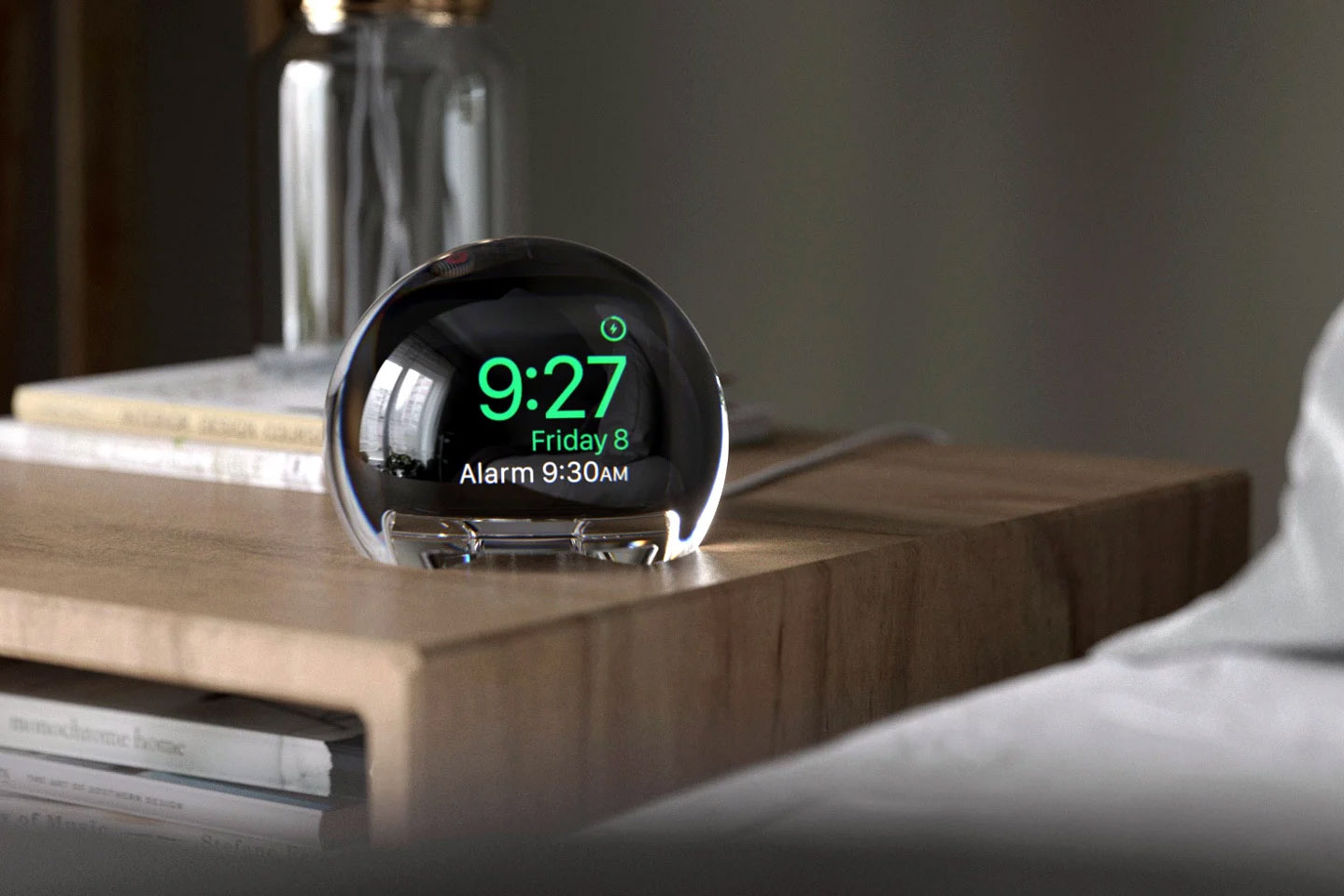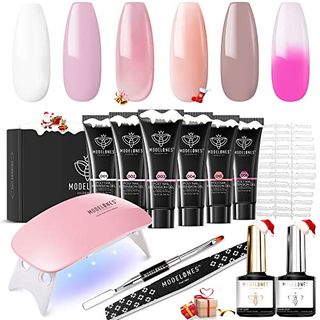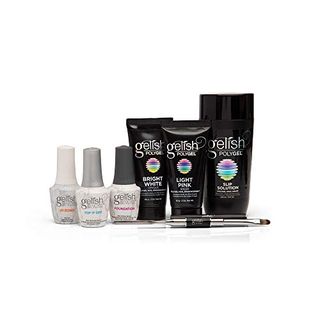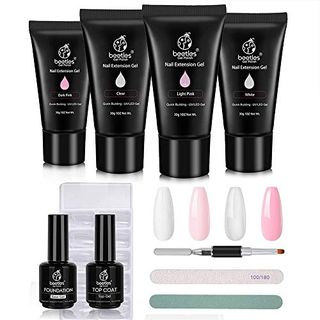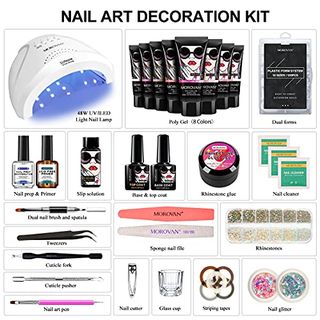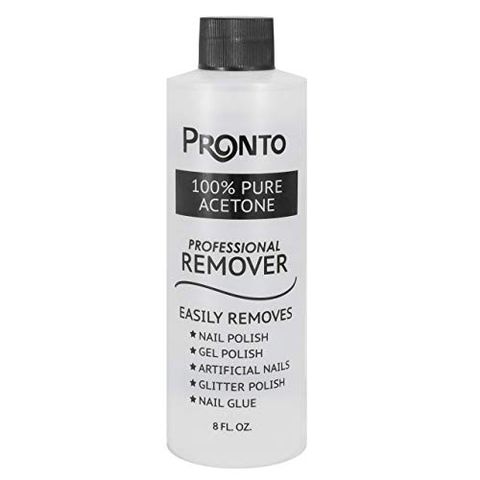
What Are Polygel Nails? Pros, Cons & How to DIY Polygel Nails at Home
Manicure upkeep can be difficult — when one nail chips, the whole set is ruined. Plus, there’s the question of whether or not you’re ruining your nails with treatments like acrylics or gels. Still, a polished and pretty set of nails can make you feel like a million bucks — not to mention, nails can be an outlet for self-expression via different nail shapes, polish colors and designs.
If you are obsessed with the look of acrylic, dip powder or gel manicures, but hate to risk damaging your nails, your new manicure hero has arrived: polygel. This gel-acrylic hybrid provides the best of both worlds, so you no longer have to choose between nail style and nail safety. So, let’s get into what actually makes the polygel formula so unique.
This content is imported from {embed-name}. You may be able to find the same content in another format, or you may be able to find more information, at their web site.
What are polygel nails?
Polygel is a nail enhancement that’s best described as a gel-acrylic hybrid formula. “You get the strength of an acrylic enhancement, but then you get some of the flexibility that comes with a gel,” explains Naomi Gonzalez-Longstaff, a nail designer and celebrity manicurist. “It is gel-based in terms of its consistency and texture, but a bit thicker.” When properly applied, polygel nails do not break easily. In fact, they’re strong and flexible, despite feeling lighter than other solutions like hard gels. Their flexible nature also makes them more durable as time passes.
Are polygel nails better than acrylic nails?
Similar to acrylic, polygel can be used to sculpt, fill in or extend nails. However, there are differences, including the fact that polygel is significantly lighter than acrylic (though it’s just as strong). It’s also different than a dip manicure, which is equivalent to granulated acrylic.
Polygel is a perfect option for anyone with softer nails, but not recommended for anyone with more brittle nails. “It’s a great in-between for those who have good natural nails but want a little bit more stability and a little bit more strength, without the abrasiveness of acrylics,” she says.
What do you need for DIY polygel nails?
If you’re attempting to do polygel nails at home, you first need supplies. Attempting the process without proper tools can be both frustrating and potentially damaging to nails. Here’s everything you’ll need to successfully pull off a set of DIY polygel nails at home.
- A polygel nail kit. There are many great kits available online with a variety of color options; choose a top-rated one that works for your budget and style.
- Dual forms or nail forms, depending on your preference. Both are a shell that is placed over the nail to sculpt. One of the biggest differences between the two is that dual forms are multi-use and nail forms are single-use.
- Base coat and top coat. These are two staples you should use whenever you DIY a manicure, as they aid in prepping and sealing the nails.
- LED light. An LED nail lamp helps to cure the nail, a.k.a. harden the polish. “The strength of an LED light is a little bit more intense than a UV light and will help the product last longer on the nails,” she explains.
- A sculpting brush (with a spatula). “You want to use a designated gel sculpting brush that has a square angle tip — think of it as a paint brush,” Gonzalez-Longstaff says.
- Rubbing alcohol. This is used to wet the brush so the polygel doesn’t completely adhere to it.
How to apply polygel nails at home
These steps can vary based on the instructions in your kit; adhere to them carefully for best results.
This content is imported from YouTube. You may be able to find the same content in another format, or you may be able to find more information, at their web site.
- File your nails. This helps smooth any ragged edges so you start with a smooth surface that enhances lasting power.
- Choose the dual or nail forms that fit your fingers. This is an optional step, as you can also overlay the polygel on natural nails. If you do to use a dual form, your kit will likely come with different sizes. Some shapes are curvier or flatter than others, but try to match the form with your nail accordingly. “For a more natural nail look, match the dual form to the nail bed and cuticle line,” Gonzalez-Longstaff advises.
- Apply your base coat and cure it under an LED light. The amount of time underneath the light will depend on your kit, but a good rule of thumb is 60 seconds.
- Dip your brush in the included slip/alcohol-based solution. This is an important step, as it allows you to move the polygel around on the dual form (or natural nail) without the gel excessively sticking to the brush.
- Squeeze polygel on the dual form or nail. Using your brush, spread the polygel on the dual form evenly and sculpt it into the desired shape.
- If using a dual form, press the polygel coated dual form on your nail to adhere.
- Cure your nails underneath the LED light to set the polygel.
- If using a dual form, remove it.
- Cut, file and shape your nails to your desired look.
- Apply the top coat and cure your nails under the LED light one last time.
How to remove polygel nails with acetone
This content is imported from YouTube. You may be able to find the same content in another format, or you may be able to find more information, at their web site.
Much like the gel itself, the removal process is a combination of techniques. “You’re going to have to file some of it off, like you do when removing acrylic nails, and then use acetone with a cotton ball wrapped around the nail, like you do for your gel manicures,” she says.
But every kit and product has a different application and removal process, so follow the included instructions closely. One way to tell whether your polygel nail kit is good quality is “by looking at the removal process, because if it includes a lot of abrasiveness to the natural nail, that means the product isn’t formulated well,” Gonzalez-Longstaff notes.
How long do polygel nails last?
The polish itself lasts around three weeks, depending on lifestyle wear-and-tear. If you’re not opting to use a more affordable polygel kit in the comfort of your own home, note that in-salon prices can vary from $75 to $150, depending on the location and technician. If you’re only filling your nails in, rather than getting a full set of polygel nails, prices are likely lower.
This content is created and maintained by a third party, and imported onto this page to help users provide their email addresses. You may be able to find more information about this and similar content at piano.io
